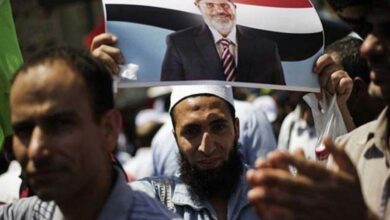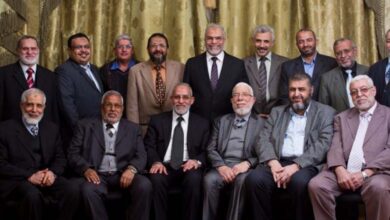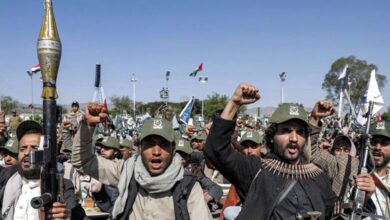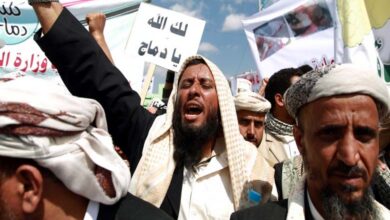The Muslim Brotherhood’s Refusal to Regularize Its Status Despite Gaining Power: Why?

When the Muslim Brotherhood gained the presidency in Egypt, they placed their members and affiliates within the judiciary to solidify their power. They suppressed anyone who wrote against them, threatening and taking legal action against critics while trying to consolidate their power.
-
After the Blow of Qanater Prison… What’s New with the Muslim Brotherhood?
-
From the Middle Leadership of the Muslim Brotherhood… Harsh Sentences Against a Brotherhood Cell Aimed at Striking the Egyptian Economy
Egyptian journalist Khaled Hanafi, in an article published in “Al-Watan” newspaper, stated that despite gaining the presidency, the Brotherhood never attempted to regularize their organization or give it a legal status. They know that their current status, since their dissolution in the 1950s, is optimal, allowing them to operate without accountability.
This status allows them to communicate with foreign and European countries and receive funds from individuals and states without being accused of espionage or treason. Additionally, this situation enables them to prosecute anyone who approaches or attempts to expose them.
-
What are the reasons behind the internal conflicts and divisions within the Muslim Brotherhood? What happened?
-
Revelations of Intrigues Within the Brotherhood… Leaked Document Details Brotherhood’s Plan to End Division
According to Hanafi’s article, the Brotherhood is well aware that they have been dissolved twice; the first time in November 1948 under the government of Nukrashi Pasha, who they assassinated in response. Two years later, they challenged the dissolution decision and succeeded in having it revoked, regaining their legitimacy.
-
Expert Reveals Reason for Conflicts Within the Muslim Brotherhood
-
Iran Bans Broadcast of “Al-Hashashin” Series – What’s Its Connection to the Muslim Brotherhood?
The second dissolution occurred in 1954 following the attempted assassination of Gamal Abdel Nasser in Manshiya. At that time, the Revolutionary Command Council decided to dissolve the Brotherhood, considering it a political party and applying the decree for the dissolution of political parties. The decision was made in January of the same year, and in December, the Revolutionary Command Council issued another decision to liquidate companies owned by the Brotherhood and prohibit their re-establishment in any form












